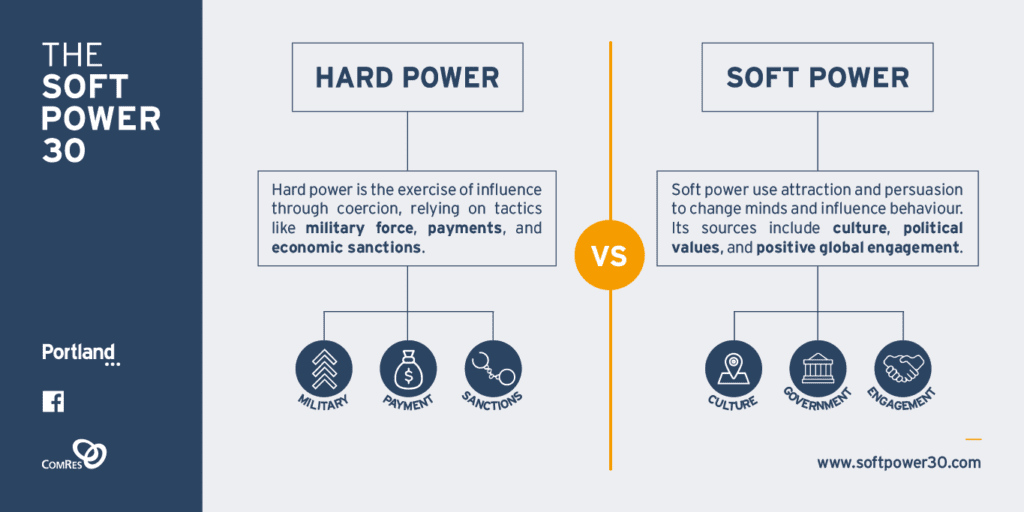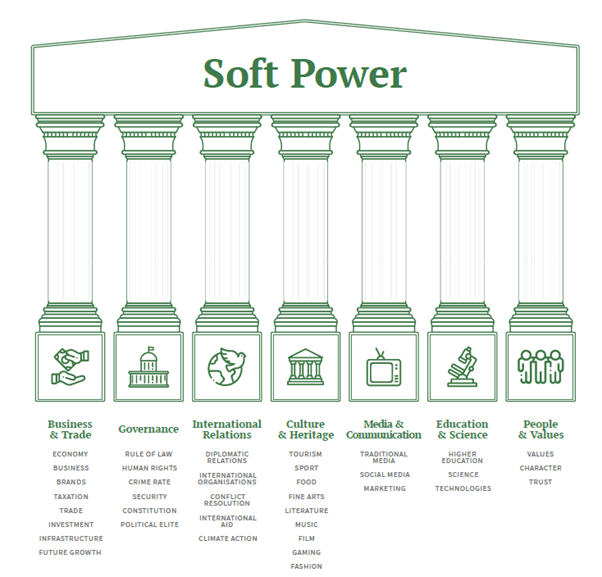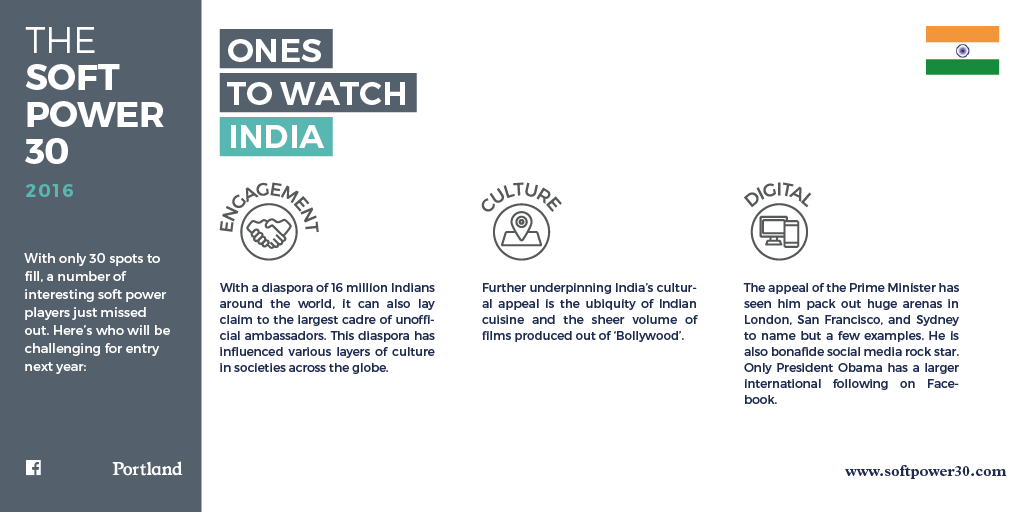What makes a country a superpower? The determining factors have changed over the years with a gradual shift from military superiority and geographical advantages, to political influence with the focus currently being on maintaining the upper hand in diplomatic relationships. This is where ‘Soft Power’ comes into play. A term coined by Joseph Nye in the late 1980s, soft power changed the scope of international affairs through its introduction. Superpowers at the time (USA, Russia, etc.) heavily leaned on soft power to get their way without the use of brute force. Before getting into the implications of Soft Power in India, let us explain what the term itself implies.
What is ‘Soft Power’?
Traditionally, empires were built on military prowess and brute force. Not much thought was given to diplomatic relationships between kingdoms, and then nations. The power of an empire was determined by the sheer size of the geographical region under a monarch’s control, and their ability to further expand these boundaries. A major motivation for most monarchs was pride; which doesn’t mean they didn’t care about their nations well-being. It is only indicative of the desire to be self-sufficient, without the help of external entities. However, as monarchy declined and democratic governments began to emerge; national boundaries were clearly demarcated and forceful expansion was no longer a viable option. This shift in dynamic made strong military forces an asset for self-defence rather than a means for national growth.

International affairs soon became the norm, with soft power playing an important role in establishing healthy relationships between national governments. Soft power can be described as the ability to attract and co-opt, thus shaping the opinions and preferences of others subtly. This has made a well-developed foreign policy essential for a country with soft power emphasizing the use of the social, cultural and political factors of a country to its advantage.
“When one country gets other countries to want what it wants might be called co-optive or soft power in contrast with the hard or command power of ordering others to do what it wants”
Bound to Lead: The Changing Nature of American Power, Joseph Nye
Soft Power in India
India, being the world’s largest democracy, should be one of the more influential nations in terms of soft power, right? That’s a fair assumption considering Indian culture is very popular worldwide and its democratic status gives India a stronger foothold in terms of international persuasiveness. Yet, India remains a notable exclusion from the Soft Power 30 Index. This paints a rather mixed picture, as India has a high soft power potential but fails to utilize it to their benefit. Despite having a strong sociocultural and political image worldwide, India also suffers from a poor reputation owing to corruption trends, poverty, and the hostility towards the press and freedom of speech.

That said, India also does have several metrics working in its favour that perhaps do not reflect to the extent they should in the soft power rankings. One such metric is the comparison of countries on a per capita basis, which tends to favour developed countries to a far greater degree than developing nations. Thus, even though India has been home to a hefty number of successful start-ups, a hub for software programmers leading the pack in technological innovation; India is also home to millions without access to basic amenities like electricity and the internet, with digital literacy still being comparatively low amongst a major segment of the population.
Another aspect India has struggled with is state-driven cultural diffusion. Most of India’s cultural aura is propagated overseas by private-led efforts, be it through Bollywood, or yoga, or Indian cuisine and so on. The Indian government has only recently tried reclaiming these aspects of the culture as national phenomena. This is to no fault of the government either, considering the massive cultural diversity visible between varying parts of the country. The difference between North Indian and South Indian culture is night and day, which makes it harder to associate so many variations under the umbrella of Indian culture.

However, a stress point that is far more worrisome is the outright lack of association with Indian contributions overseas. For example, Buddhism has hundreds of millions of followers across the world but are a minority in its birthplace. India has only recently made attempts to rectify this by facilitating pilgrimages and sponsoring religious renovations for countries like Japan, Sri Lanka, Thailand, China, Myanmar, etc. India’s tendency to appeal to developing nations rather than high-value countries has proved to be a downfall as well. Indian cinema, Bollywood, the cuisine, all of these aspects have turned into niche markets worldwide and haven’t really taken the world by storm. That said, these aspects have also received worldwide recognition at the bare minimum, the next step is only to further in mass appeal.
Where has India applied Soft Power?
Although India hasn’t fit into the Soft power rankings, the country still has a considerable amount of leverage due to its rich culture, political stance and foreign policy. Post-independence, India formed strong relationships with both the United States and the Soviet Union. These relationships directly contributed to the formation of the Indian Institutes of Technology, which in turn was heavily responsible to the technological growth in the country.

India has also stood strong on its moral principles, providing the Dalai Lama refuge when he sought the same in 1959, supporting numerous African nations in their fight against apartheid, and so on. India has thus, been recognized for its humanitarian work that has given the country a substantial amount of leverage in international politics which has not been quantified in terms of metrics used to measure soft power. India definitely has room for improvement, on paper, to climb the soft power rankings and gain further influence over international politics. That said, the present soft power metrics understate the influence India possesses, and India has clearly understood that soft power is necessary but not sufficient for its international relationships and overall growth.
